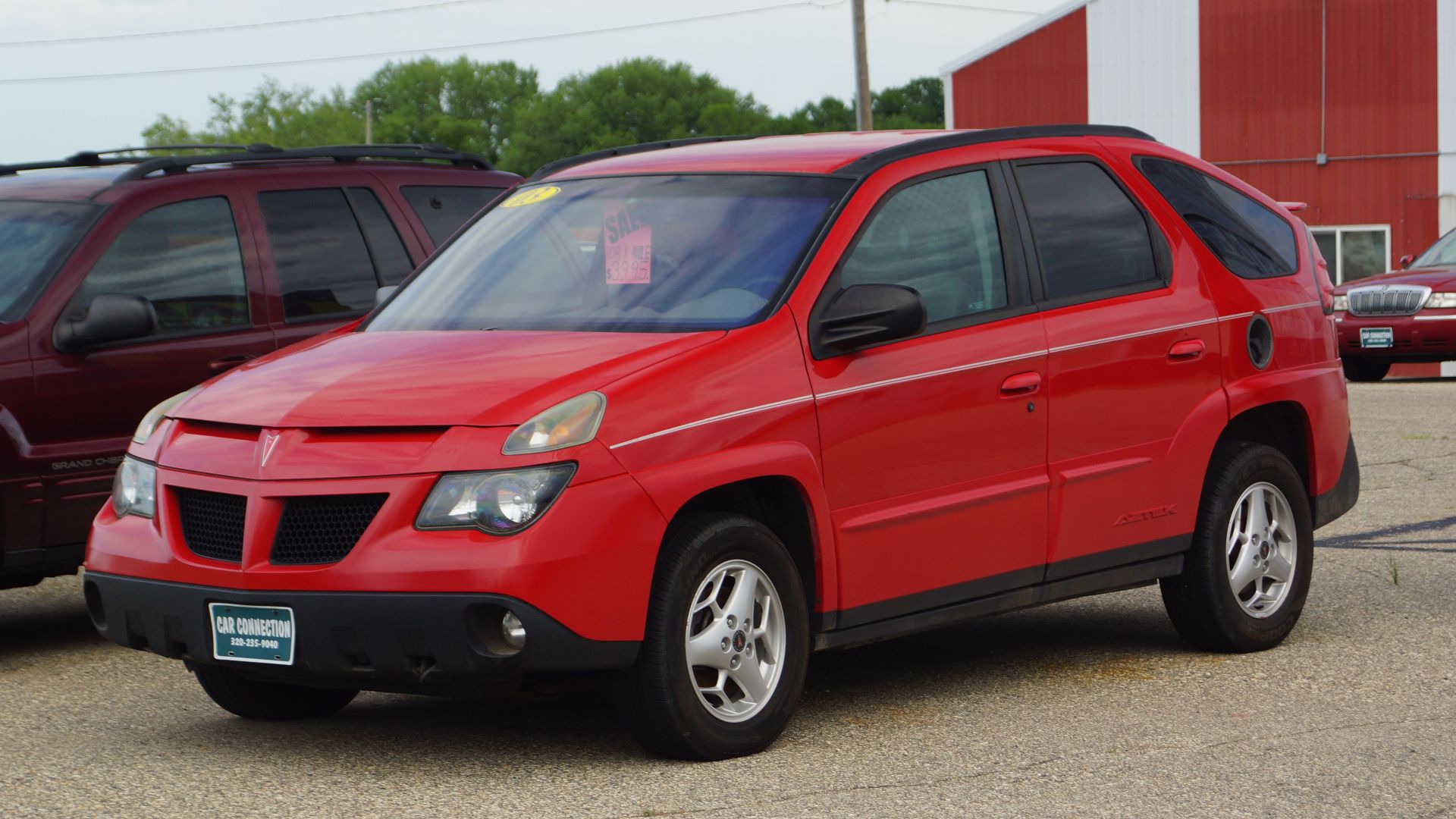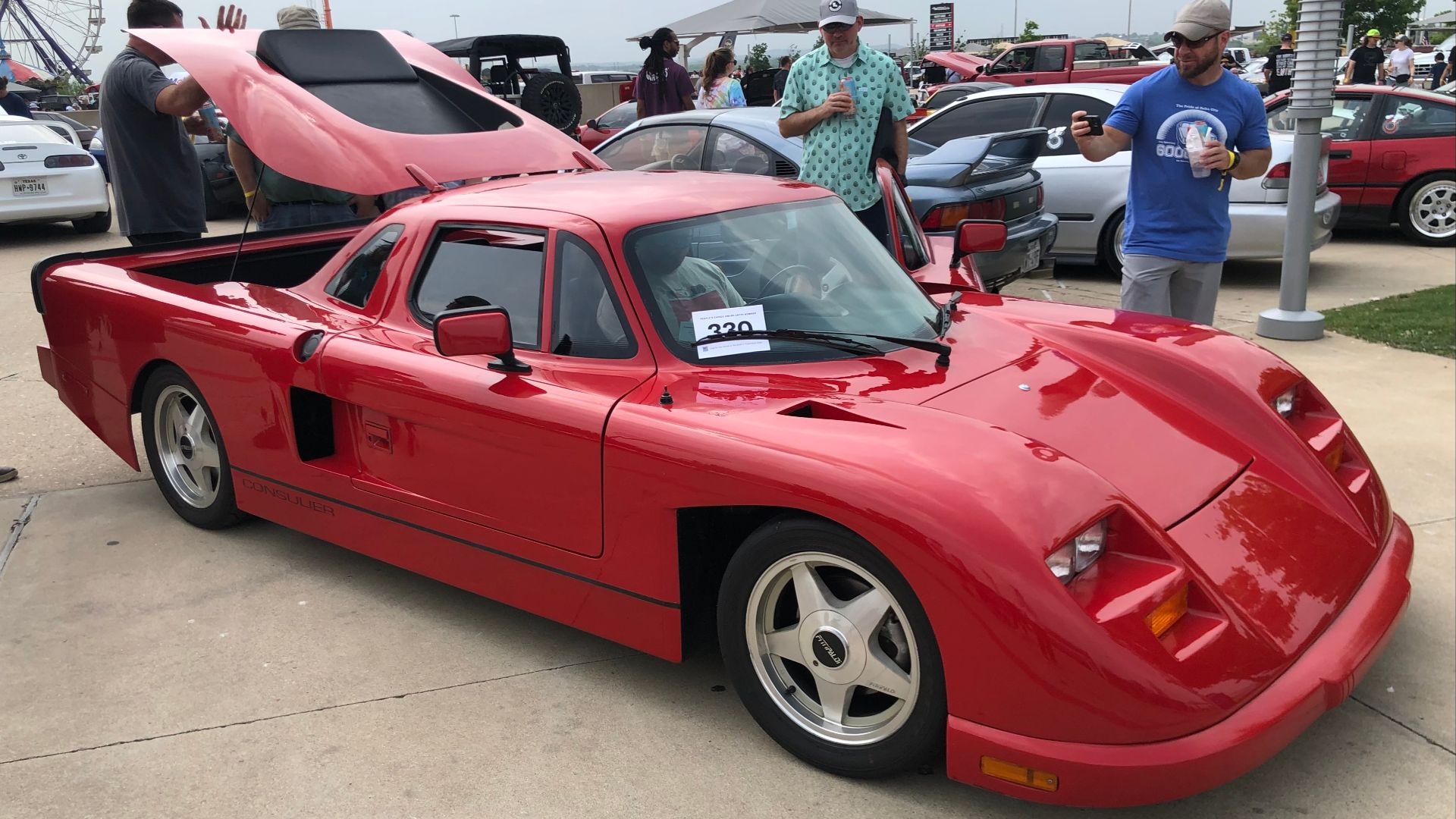Roadside Legends With No Encore
A “one-hit wonder” isn’t just a car that vanished almost as soon as it arrived—it’s also about the companies that pinned everything on one standout vehicle before fading away themselves. While some earned early praise for bold design, others collapsed under the weight of insurmountable engineering flaws. But some were also simply ahead of their time and misunderstood by the market. Regardless of what led to their downfall, these 20 notorious one-hit wonders still spark fascination today.
1. Delorean DMC-12
While its gleaming stainless steel body and exclusive gold-plated editions promised automotive excellence, the DMC-12's sluggish 130-horsepower V6 and weighty frame told a different story. After just 9,000 units and two troubled years, DeLorean collapsed—only to find immortality in the Back to the Future franchise.
2. Bricklin SV-1
In just two short years, Bricklin's Canadian venture managed to produce 2,900 examples of its safety-focused SV-1, each sporting one of five vivid, non-black colors and signature gullwing doors. But mounting costs and quality struggles quickly transformed this ambitious number into a final tally.
3. Pontiac Aztek
Despite its innovative built-in camping package, complete with a tent and an air mattress, the Pontiac Aztek's bold design vision backfired spectacularly. Produced from 2001 to 2005, the crossover's unconventional styling drew widespread criticism as one of history's ugliest cars, which doomed sales from the start.
 Greg Gjerdingen from Willmar, USA on Wikimedia
Greg Gjerdingen from Willmar, USA on Wikimedia
4. Tucker 48
Here's a peculiar automotive mystery: a helicopter engine found its way into the Tucker 48's rear compartment, powering a car packed with revolutionary safety features like the "Cyclops Eye" headlight and pop-out windshield. Only 51 were built before legal troubles ended production—a saga Jeff Bridges brought to the screen in 1988.
5. Reliant Robin
As Reliant’s most infamous one-hit wonder, the Robin earned cult status for all the wrong reasons. Launched in 1973 as a lightweight, fiberglass three-wheeler drivable on a motorcycle license, it became a national punchline—immortalized by Top Gear’s endless rollovers and its questionable stability.
6. Saleen S7
America’s rare supercar, the Saleen S7, flexed twin-turbo power surpassing 1,000 horsepower and starred in Bruce Almighty. Hand-crafted with a sky-high price, its rarity and performance made the S7 a one-hit wonder—no other Saleen model ever came close.
 steve lyon from los angeles, ca, usa on Wikimedia
steve lyon from los angeles, ca, usa on Wikimedia
7. AMC Gremlin
The AMC Gremlin, a quirky subcompact, turned heads with its chopped Hornet design and Levi’s denim interiors. Its bold, unconventional style gained such cult status that AMC could never replicate its unique cultural splash with another model.
8. Yugo GV
Marketed as America's most affordable new car in the 1980s, the Yugoslav-built Yugo GV promised budget-conscious drivers a bargain. But this Fiat 127-based economy car quickly became a cultural punchline, as constant breakdowns and recalls revealed the true cost of cutting corners.
 Michael Gil from Toronto, ON, Canada on Wikimedia
Michael Gil from Toronto, ON, Canada on Wikimedia
9. Chevrolet Vega
Meet the Chevrolet Vega, shipped in vertical railcars and crowned Motor Trend’s 1971 Car of the Year. Its sleek design and aluminum engine sparked early hype, but overheating and rust issues quickly surfaced. The Vega became a one-hit wonder—celebrated at launch, then dismissed as a small car plagued by big reliability problems.
10. Chrysler Prowler
Channeling the spirit of 1930s hot rod culture, the Chrysler Prowler emerged as a bold retro-styled dream machine, though its V8-less reality puzzled enthusiasts. Despite creative aluminum construction to trim weight, the impractical and expensive Prowler struggled to find buyers before fading away in obscurity.
 Jeremy from Sydney, Australia on Wikimedia
Jeremy from Sydney, Australia on Wikimedia
11. Lincoln Blackwood
Despite the initial novelty of a luxury pickup truck, only 3,383 Lincoln Blackwoods found homes during its innaugural year in 2002. The numbers tell a clear tale: buyers rejected its peculiar carpeted, trunk-like cargo bed and puzzling lack of four-wheel drive capability.
12. De Tomaso Pantera
When De Tomaso released the "Panther" in 1971, its Italian-American fusion seemed unstoppable—seductive Mediterranean curves powered by Detroit muscle. But this cross-cultural romance soured quickly, with reliability issues limiting U.S. imports and even driving Elvis Presley to famously shoot his uncooperative car.
13. Panoz Esperante
The Panoz Esperante, a hand-crafted American sports car with an aluminum chassis and a Ford V8, shone at Le Mans with racing prowess. Its niche appeal and limited production made it Panoz’s singular standout, unmatched by other models.
14. Stutz Blackhawk
Gleaming with gold trim and Italian flair, the Stutz Blackhawk turned heads, even snagging Elvis Presley as a fan. Its luxury defined a short-lived brand revival, but no other Stutz car ever matched its unforgettable, one-time splash.
15. Iso Grifo
Iso’s Grifo became the company’s shining one-hit wonder—an Italian grand tourer blending Giorgetto Giugiaro’s sleek Bertone design with raw American V8 power. Produced between 1965 and 1974 in limited numbers, it left a lasting reputation even as the automaker itself faded into obscurity.
16. Packard Caribbean
Launched in 1953, the Packard Caribbean showcased automotive innovation through distinctive two-tone paint schemes and later push-button transmission controls. Despite these advances, the luxury convertible's exclusivity and steep pricing couldn't sustain the brand, leading to its discontinuation by 1956.
17. Consulier GTP
Breaking with traditional sports car construction, the Consulier GTP's composite body technology revolutionized performance engineering when it debuted in 1985. This American-made lightweight proved so formidable that racing authorities banned it from competition, and its radical styling and high cost ultimately limited production during its eight-year run.
18. Honda S800
As Honda bid farewell to chain-drive technology, the 1966 S800 emerged as a fitting finale, wrapping its engineering in both coupe and convertible packages. Its astonishing 8,500-rpm engine captured enthusiasts' hearts, even if mainstream success proved elusive during its four-year production run.
19. Trabant 601
East Germany's Trabant 601 seemed innovative with its recycled-material Duroplast body, but that's where the ingenuity ended. This communist-era icon, manufactured from 1963 to 1990, paired its plastic shell with a wheezing two-stroke engine—and still had eager buyers waiting over a decade to get their hands on one.
20. Gumpert Apollo
In a triumph of aerodynamic wizardry, the Gumpert Apollo could theoretically race upside down through tunnels—a fitting party trick for this radical German supercar. Despite setting a Top Gear lap record, its extreme track focus limited mainstream appeal. Financial strain followed, and Gumpert eventually filed for bankruptcy after its 2005–2012 production run.
























